Welcome to Jiangsu DZX Factory.
Email:dlx@dlx-alloy.com Mobile/Whatsapp:+86 199 0611 9641
Professional manufacturer of welding wires and spraying wires,over 22 years.
Welcome to Jiangsu DZX Factory.
Email:dlx@dlx-alloy.com Mobile/Whatsapp:+86 199 0611 9641
Professional manufacturer of welding wires and spraying wires,over 22 years.
Contact:Jason
Whatsapp:+8619906119641
Email:dlx@dlx-alloy.com
Add:NO.32 West Taihu Road, Xinbei District, Changzhou, Jiangsu,China
Aluminum welding wire
Product Details
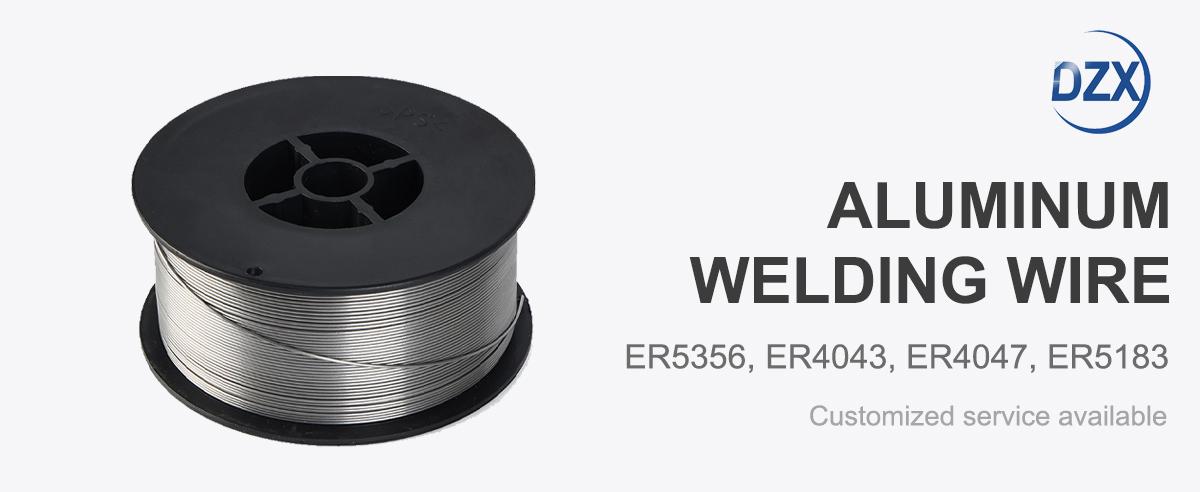
Our ER4047 Aluminum Welding Wire is a standout choice for low-melting-point brazing and aluminum joining. With 12% silicon, this wire flows like a dream, creating strong, clean joints with minimal effort. It’s built for both MIG and TIG welding, offering smooth arcs and low spatter for professional results. Perfect for joining aluminum alloys or brazing components, it’s a reliable pick for projects that demand precision and durability, delivering welds that look great and last long.
The aluminum welding wire market is growing fast, fueled by industries like automotive, HVAC, and aerospace leaning hard into lightweight, corrosion-resistant materials. Brazing is gaining traction for its ability to create strong joints without distorting delicate parts, while aluminum’s recyclability aligns with the push for sustainable manufacturing. Automation is another big trend, with robotic welding systems demanding wires that feed consistently and perform flawlessly. Our ER4047 wire is designed to meet these needs, offering top-notch performance for both manual and automated setups in a competitive market.
| AWS Classification | Applications |
| ERNiCr-3 | Used for welding 600, 601, and 800 alloys and dissimilar welding between stainless steel and carbon steel |
| ERNiCrFe-7 | Suitable for welding nickel-chromium-iron alloys under ASTM B163, B166, B167, and B168 standards |
| ERNiCrFe-6 | Designed for welding steel to nickel-chromium-iron alloys, as well as stainless steel to nickel-based alloys |
| ERNiCrCoMo-1 | Used for welding nickel-chromium-cobalt-molybdenum alloys and various high-temperature alloys |
| ERNiCrMo-3 | Suitable for nickel alloy, carbon steel, stainless steel, and low alloy steel welding, primarily used for 625, 601, 802 alloys, and 9% nickel alloys |
| ERNi-CI | Used for welding commercially pure nickel, malleable cast iron, and gray cast iron |
| ERCuNi | Suitable for welding 70/30, 80/20, and 90/10 copper-nickel alloys |
| ERNiCu-7 | Used for welding nickel-copper alloys such as B127, B163, B164, and B165 |
| ERNi-1 | Designed for welding pure nickel castings and forgings, including those under ASTM B160, B161, B162, and B163 standards |
| ERNiFeMn-CI | Suitable for welding nodular cast iron, ductile iron, malleable cast iron, and gray cast iron, as well as their dissimilar welding to stainless steel, carbon steel, low alloy steel, and various nickel alloys |
| ERNiCrMo-4 | Used for welding nickel-chromium-molybdenum alloys, or for welding nickel-chromium-molybdenum alloys to steel and other nickel-based alloys |
| ERNiCrMo-11 | uitable for self-welding nickel-chromium-molybdenum alloys, dissimilar welding with steel and other nickel alloys, and also for cladding applications |
| ERNiCrMo-13 | Used for welding low-carbon nickel-chromium-molybdenum alloys |
| ENiCrMo-3 | Designed for welding nickel-chromium-molybdenum alloys, including 625, 800, 801, 825, and 600 |
| ENiCrFe-3 | Used for welding nickel-chromium-iron alloys and for dissimilar welding with carbon steel |
| ENiCrFe-2 | Suitable for welding austenitic steel, ferritic steel, and high-nickel alloys, also used for 9% nickel alloy welding |
| ENiCu-7 | Primarily used for welding nickel-copper alloys and their dissimilar welding with steel |
| ENiCrFe-7 | Ideal for welding 690 (UNS N06690) nickel-chromium-iron alloys |
| ENiCrMo-4 | Designed for C-276 alloy welding and most nickel-based alloys |
| ENiCrCoMo-1 | Suitable for welding nickel-chromium-cobalt-molybdenum alloys and various high-temperature alloys |
| ERCuNi | Used for welding forged or cast 70/30, 80/20, and 90/10 copper-nickel alloys |
| ENiCrMo-13 | Used for welding low-carbon nickel-chromium-molybdenum alloys |
| ENiCrMo-11 | Used for welding low-carbon nickel-chromium-molybdenum alloys |
| Welding Wire Type | Density (g/cm³) | Melting Point (°C) | Electrical Conductivity (% IACS) | Coefficient of Thermal Expansion (10⁻⁶/°C) | Tensile Strength (MPa) | Yield Strength (MPa) | Elongation at Break (%) |
| Carbon Steel Welding Wire | 7.85 | 1450 | 8-10 | 11.8 | 400-550 | 300-400 | 20-25 |
| Stainless Steel Welding Wire | 7.9 | 1350-1450 | 2-5 | 16-17 | 550-650 | 300-400 | 30-40 |
| Aluminum Welding Wire | 2.7 | 600-660 | >60 | 23.1 | 150-200 | 75-100 | >20 |
| Nickel Alloy Welding Wire | 8.4 | 1350-1400 | 1-2 | 13.1 | 600-800 | 400-600 | 30-40 |
| Welding Rod Type | Coating | Electrical Resistivity (10⁻⁶ Ω·cm) | Hardness (HV) | Heat Resistance (°C) | Tensile Strength (MPa) | Yield Strength (MPa) | Elongation at Break (%) |
| Carbon Steel Welding Rod | Acid coated, alkaline coated | 10-15 | 150-200 | < 450 | 400-550 | 300-400 | 20-25 |
| Stainless Steel Welding Rod | Acid coated, alkaline coated | 60-80 | 200-400 | < 800 | 550-750 | 350-450 | 25-35 |
| Cast Iron Welding Rod | Alkaline coated | 90-120 | 250-450 | 300-600 | 300-500 | 150-300 | 10-20 |
| Nickel Alloy Welding Rod | Alkaline coated | 80-100 | 200-300 | < 1200 | 700-900 | 450-650 | 20-35 |
For more other size details, pls directly contact us
ER4047 Aluminum Welding Wire is your go-to for specialized jobs. It’s perfect for brazing aluminum in HVAC systems, automotive radiators, and heat exchangers, where leak-proof joints are a must. For aluminum joining, it excels at connecting 6XXX series alloys and dissimilar metals, making it ideal for aerospace components, electronics casings, and thin-sheet fabrication. Its low melting point and excellent fluidity also make it great for repairing cast aluminum parts, ensuring strong bonds without compromising the material.
Parameter | Our ER4047 Welding Wire | Competitor’s Aluminum Wire |
|---|---|---|
Alloy Type | Silicon-alloyed (12% Si) | Often lower Si content, less effective |
Melting Point | Low, ideal for brazing and delicate joining | Higher, less suitable for brazing |
Arc Stability | Excellent, smooth arc with minimal spatter | Moderate, prone to arc issues |
Fluidity | Superior flow for brazing and thin sheets | Limited flow, less precise for joining |
Weld Appearance | Clean, smooth joints with professional finish | Inconsistent, may need post-weld cleanup |
Applications | Brazing, aluminum joining, HVAC, aerospace | Limited to general welding tasks |
Corrosion Resistance | High, great for harsh environments | Moderate, less reliable in tough conditions |
Automation Support | Optimized for robotic and manual welding | Less consistent in automated systems |
Our ER4047 Aluminum Welding Wire is engineered to make brazing and aluminum joining a breeze. Its high silicon content gives it a low melting point and killer fluidity, ensuring clean, strong joints every time. Unlike other wires, ours performs flawlessly in both MIG and TIG setups, whether you’re welding by hand or using a robot. We put every spool through rigorous quality checks, so you get consistent results, no matter the job. From HVAC brazing to aerospace assemblies, our ER4047 wire delivers the precision and reliability you need to stand out.
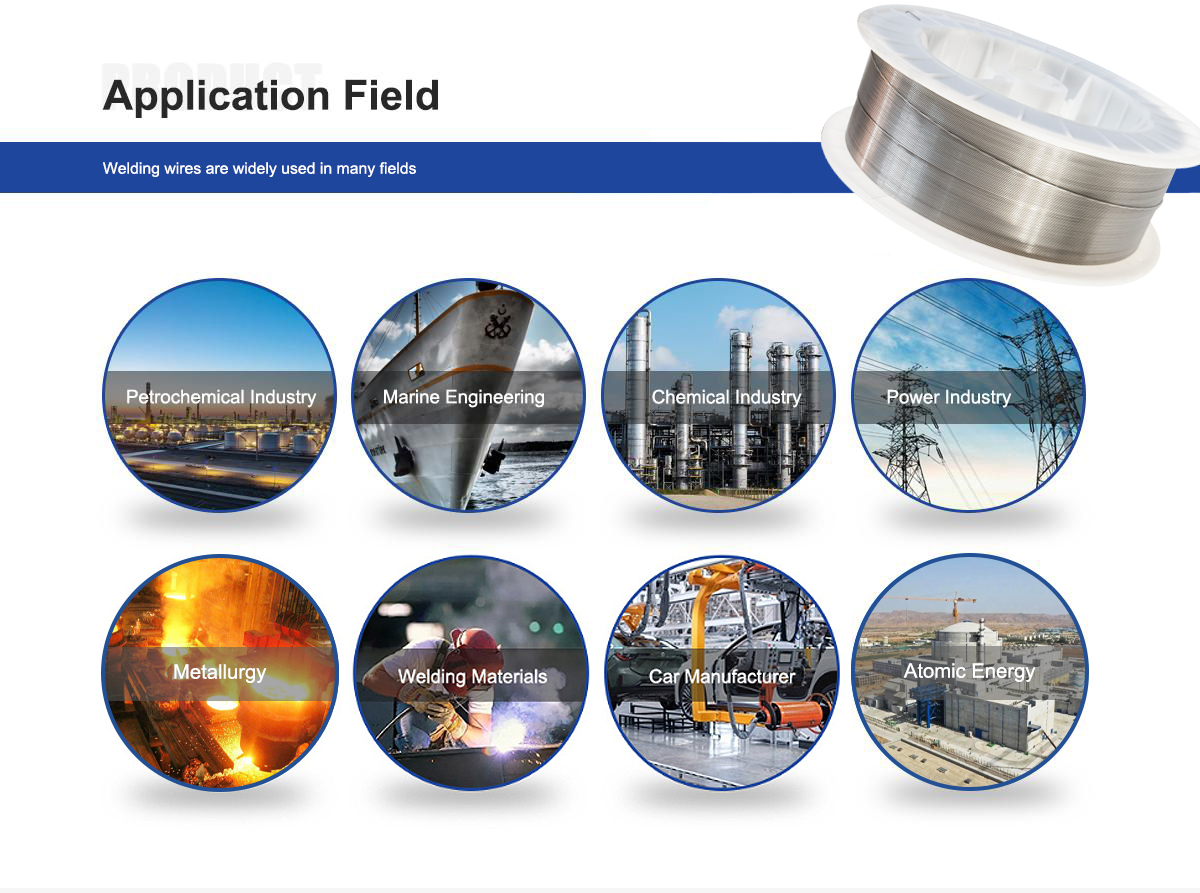
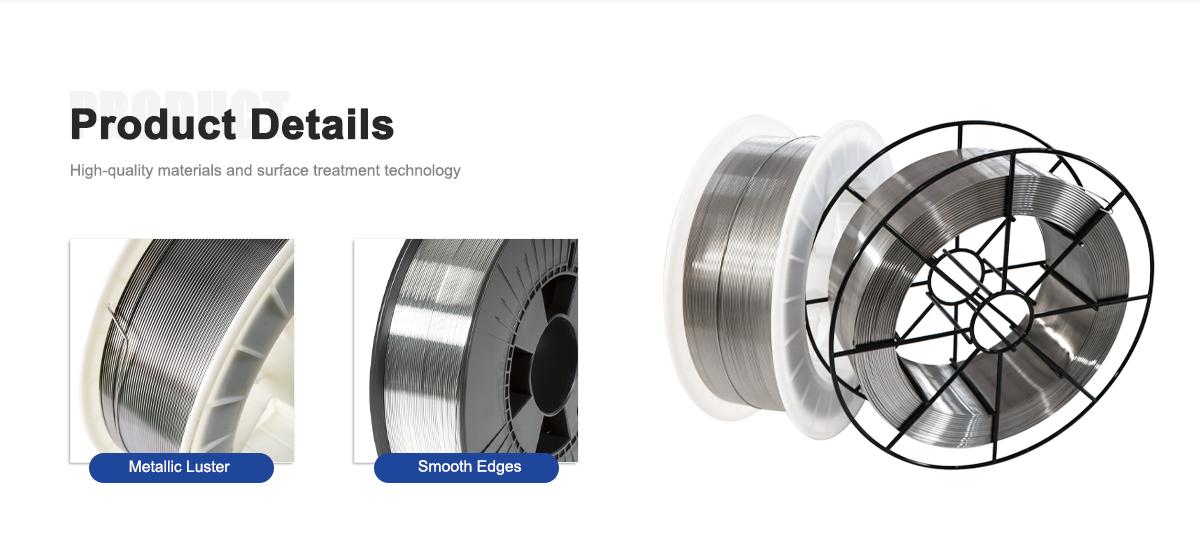
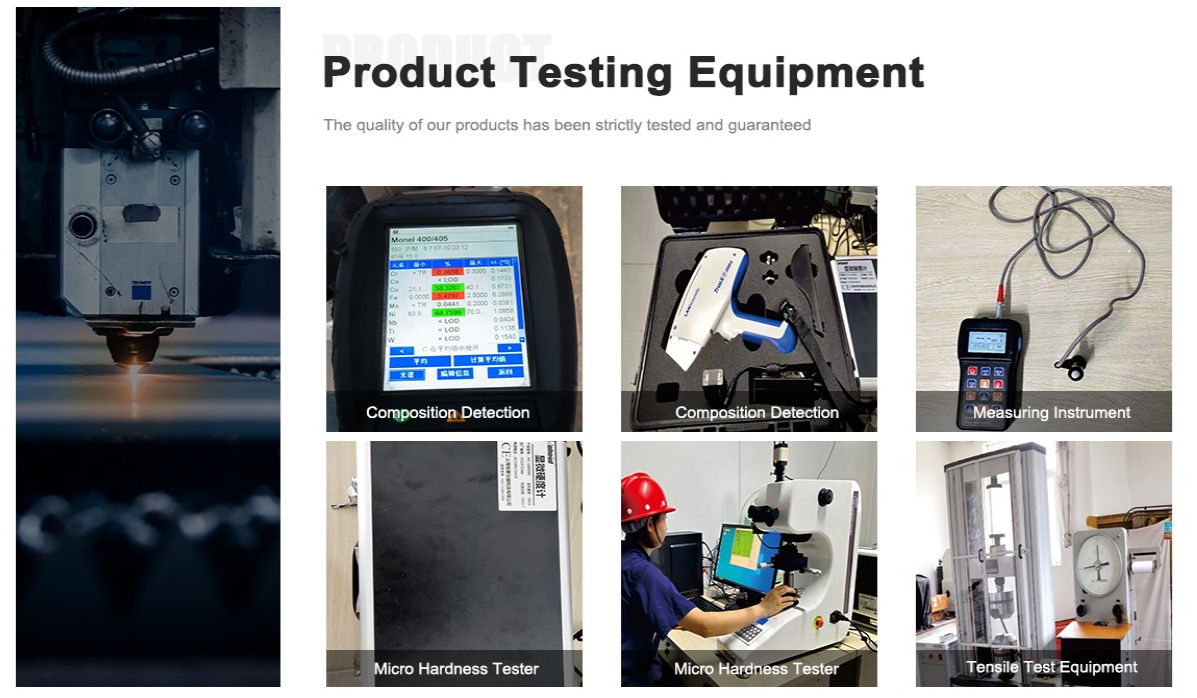
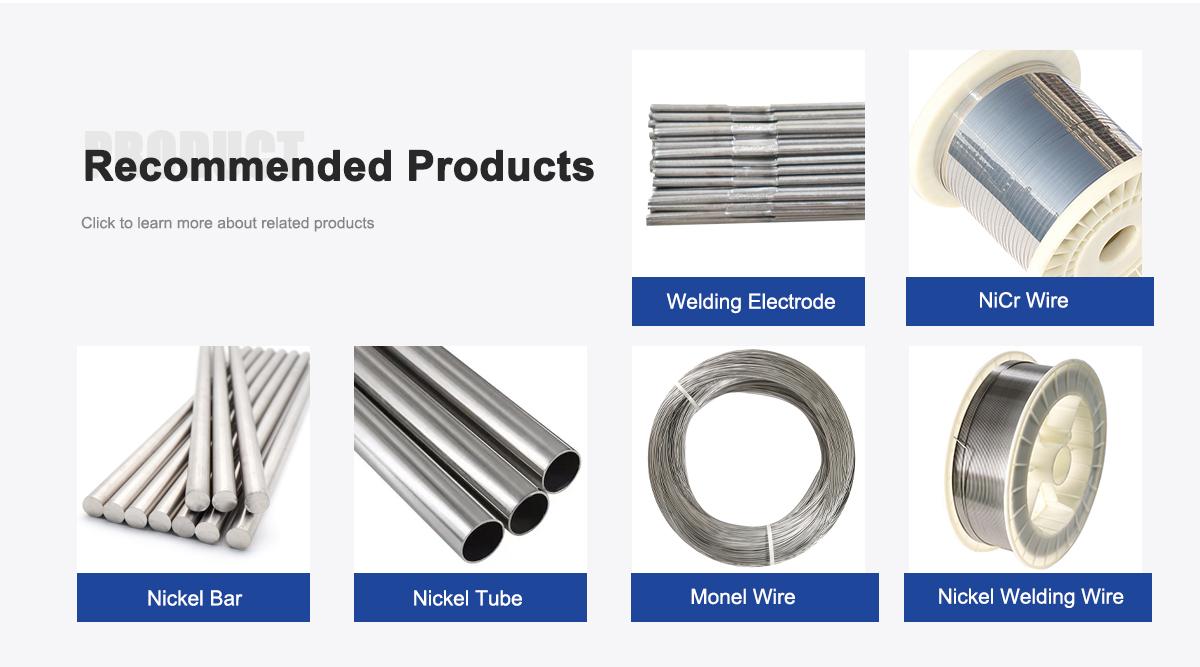
About Us:
Our 12,000㎡ factory is equipped with complete capabilities for research, production, testing, and packaging. We strictly adhere to ISO 9001 standards in our production processes, with an annual output of 1,200 tons. This ensures that we meet both quantity and quality demands. Furthermore, all products undergo rigorous simulated environment testing including high temperature, high pressure, and corrosion tests before being dispatched, ensuring they meet customer specifications. We also provide chemical analysis reports for every FeCrAl alloy, NiCr alloy, and other products purchased.
For all our clients, we offer timely and multilingual after-sales support and technical consulting, helping you resolve any issues swiftly and efficiently.
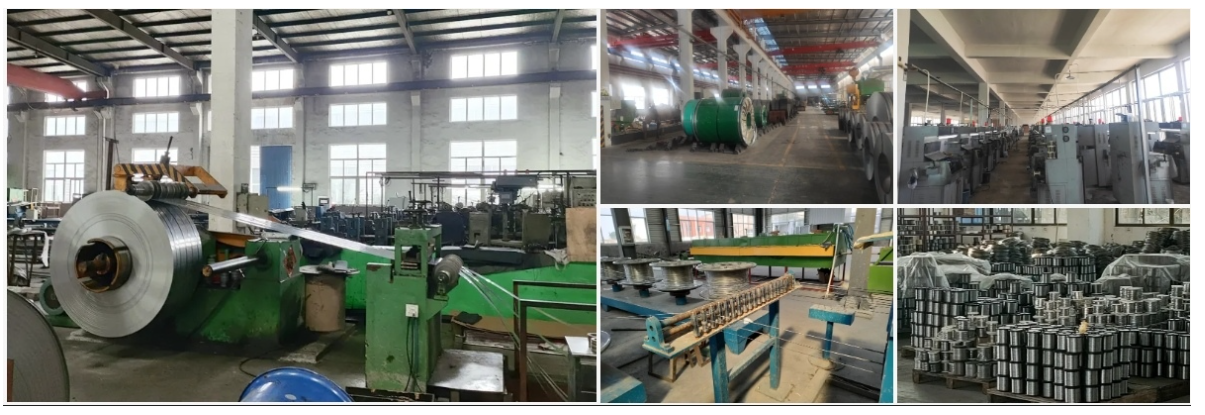
Client Visits
Building Stronger Partnerships

We support all kinds of testing:
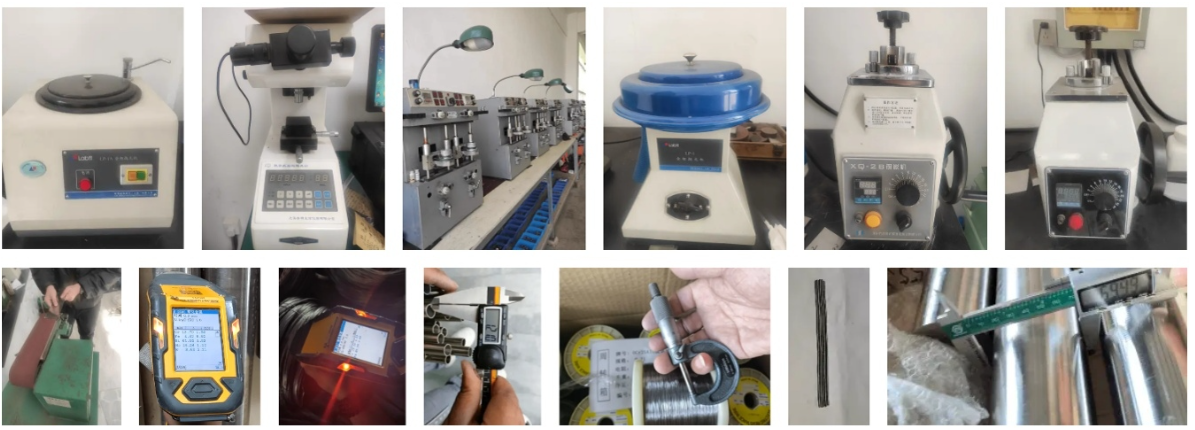

What is ER4047 Aluminum Welding Wire used for?
It’s used for low-melting-point brazing and joining aluminum in HVAC, automotive, and aerospace applications.
Which industries benefit from ER4047 wire?
Automotive, HVAC, aerospace, and electronics rely on it for precise, durable joints.
Is ER4047 ideal for brazing aluminum components?
Yes, its high silicon content and low melting point make it perfect for brazing.
Can ER4047 join dissimilar aluminum alloys?
Absolutely, it creates strong bonds between different aluminum grades.
How does ER4047 perform in automated welding?
It’s optimized for robotic systems, with consistent feedability and stable arcs.
Is ER4047 suitable for thin aluminum sheets?
Definitely, its smooth flow prevents burn-through on delicate materials.
Does ER4047 work with standard welding equipment?
Yep, it’s compatible with most MIG and TIG welders, no special setup needed.
What’s the advantage of ER4047 for brazing and joining?
It offers excellent fluidity, low spatter, and clean, strong joints for precision work.